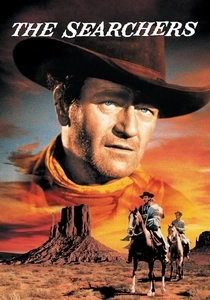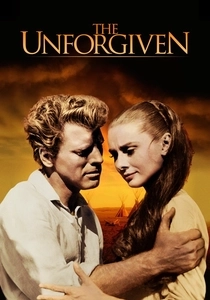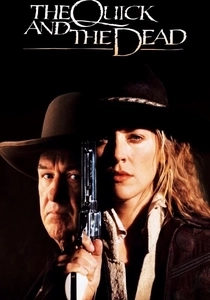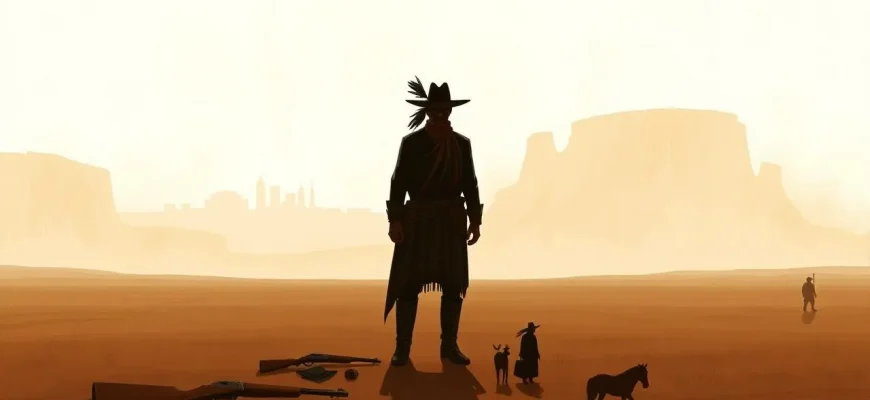Western films have long been a canvas for exploring complex human emotions and societal issues. This curated selection of 10 Westerns focuses on the theme of prejudice, showcasing how these films address racial, cultural, and personal biases. These movies not only entertain but also provoke thought, offering insights into the human condition through the lens of the Wild West. Whether it's through the portrayal of Native Americans, African Americans, or other marginalized groups, these films challenge viewers to reflect on their own preconceptions and the historical context of prejudice.

The Ox-Bow Incident (1943)
Description: This film delves into mob mentality and the prejudice against those perceived as outsiders, leading to a tragic miscarriage of justice.
Fact: The film was based on the novel by Walter Van Tilburg Clark, and its themes were considered ahead of their time.
 Watch Now
Watch Now 
The Searchers (1956)
Description: John Ford's classic explores racial prejudice through the journey of Ethan Edwards, who harbors deep-seated hatred for Native Americans, reflecting the era's attitudes.
Fact: The film was controversial for its time due to its portrayal of Native Americans. It was also one of the first films to be shot in VistaVision.
 Watch Now
Watch Now 
The Magnificent Seven (1960)
Description: While not explicitly about prejudice, the film's diverse cast of gunfighters subtly addresses issues of race and nationality in the West.
Fact: The film was a remake of Akira Kurosawa's "Seven Samurai," adapting the story to a Western setting.
 Watch Now
Watch Now 
The Unforgiven (1960)
Description: Racial prejudice is at the heart of this story where a family's secret Native American heritage leads to conflict and violence.
Fact: The film was directed by John Huston and starred Burt Lancaster and Audrey Hepburn, showcasing a rare pairing.
 Watch Now
Watch Now 
The Man Who Shot Liberty Valance (1962)
Description: John Ford's film examines the myth of the West and the prejudice against those who do not fit the heroic mold, focusing on the clash between law and violence.
Fact: The film features one of the most famous lines in cinema: "When the legend becomes fact, print the legend."
 Watch Now
Watch Now 
Blazing Saddles (1974)
Description: Mel Brooks' satirical comedy uses humor to address racial prejudice, with a black sheriff appointed to a town full of racists, turning the tables on bigotry.
Fact: The film was initially met with resistance from Warner Bros. due to its controversial content, but it became a critical and commercial success.
 Watch Now
Watch Now 
The Outlaw Josey Wales (1976)
Description: Clint Eastwood's character, Josey Wales, forms an unlikely alliance with a diverse group, highlighting themes of racial and cultural integration.
Fact: The film was based on the novel "The Rebel Outlaw: Josey Wales" by Forrest Carter, who had a controversial past as a member of the Ku Klux Klan.
 Watch Now
Watch Now 
Dances with Wolves (1990)
Description: This epic tale follows a Union Army officer who develops a deep respect for the Lakota people, challenging his initial prejudices and those of the audience.
Fact: Kevin Costner, who directed and starred in the film, learned the Lakota language for authenticity. The film won seven Academy Awards, including Best Picture.
 Watch Now
Watch Now 
The Ballad of Little Jo (1993)
Description: This film explores gender prejudice as a woman disguises herself as a man to survive in the harsh West, challenging societal norms and expectations.
Fact: The film was inspired by the real-life story of Josephine Monaghan, who lived as a man in the 19th century.
 Watch Now
Watch Now 
The Quick and the Dead (1995)
Description: This film subtly explores gender roles and prejudice through a female gunslinger's participation in a deadly quick-draw contest.
Fact: Sharon Stone, who plays the lead, was also a producer on the film, marking one of her first major production roles.
 Watch Now
Watch Now 








